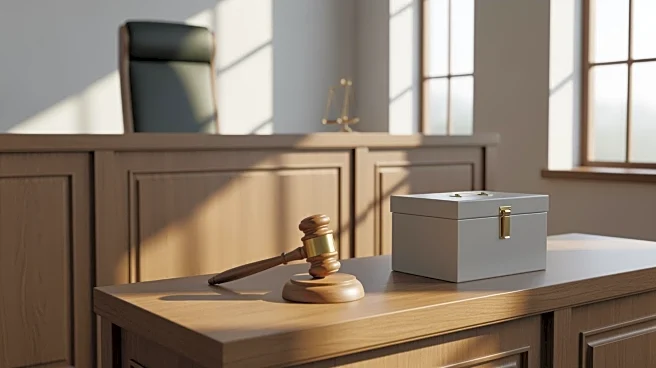What's Happening?
Attorneys for Illinois have petitioned the U.S. Supreme Court to reject President Trump's request to deploy National Guard troops to the Chicago area for immigration enforcement. The state argues that
the high court's involvement is premature, as a district court's decision is still pending appeal. The request follows a temporary restraining order issued by U.S. District Judge April Perry, which the Trump administration seeks to overturn. The administration claims that federal personnel and property are at risk due to ongoing protests, but Illinois contends that the evidence does not support this claim. A hearing is scheduled to determine if the restraining order should be extended.
Why It's Important?
The case highlights tensions between federal and state authorities over immigration enforcement and the use of military forces in domestic situations. The outcome could set a precedent for federal intervention in state matters, impacting how immigration enforcement is conducted across the U.S. If the Supreme Court sides with President Trump, it may embolden further federal actions in other states facing similar protests. Conversely, a decision favoring Illinois could reinforce state autonomy in managing local law enforcement and protest activities.
What's Next?
Judge Perry is set to hold a hearing to decide whether to extend the temporary restraining order. The Supreme Court's decision on whether to intervene could influence future federal-state relations regarding immigration enforcement. Stakeholders, including local governments and civil rights groups, are likely to react based on the court's ruling, potentially leading to further legal challenges or policy adjustments.
Beyond the Headlines
The case raises questions about the balance of power between federal and state governments, particularly in the context of immigration and civil unrest. It also touches on the ethical implications of deploying military forces for domestic law enforcement, which could affect public perception and trust in government institutions.











